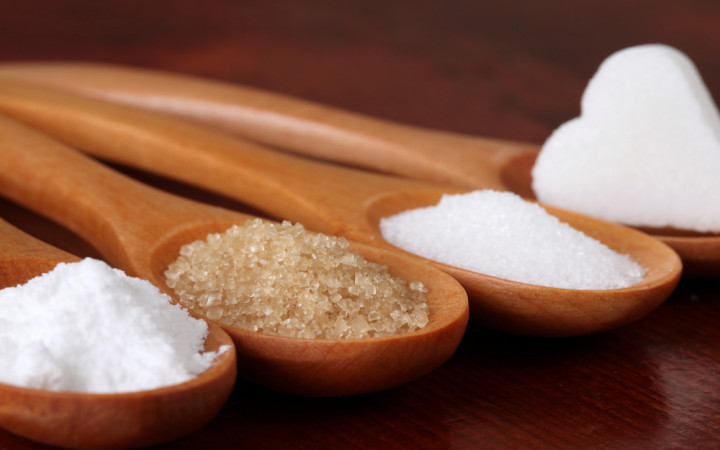Today’s Wonder of the Day was inspired by Sophia. Sophia Wonders, “Why do we react to sugar?” Thanks for WONDERing with us, Sophia!
Do you like sugar? Is that a silly question? Few people will say that they don’t. Maybe the better question would be: How much do you like sweet foods?
Some scientists say that humans are born to like sugar. It all goes back to our taste buds, after all. They have special receptors that respond to different tastes. This gives many people a sweet tooth. It’s a common desire that most of us seem to share!
Sugar comes in many forms. Even if you wanted to cut it completely from your diet, it would be almost impossible to do so. There are the obvious sweet treats—ice cream, cake, and brownies, among others. But sugar is in many other things people eat. For example, it is found naturally in fruit and milk.
Sugar is also an ingredient in other foods, including yogurt, tomato sauce, and salad dressing. Still, even if you look for it on food labels, you might miss it. They may not always say “sugar” is an ingredient.
Instead, many labels will have these words:
sucrose: white “table” sugar
glucose: a form of sugar less sweet than sucrose
fructose: the sweetest form of sugar that combines with glucose to form sucrose, such as in corn syrup
lactose: milk sugar
You might eat these in the form of ice cream, candy, honey, or fruit. However you eat it, your body treats all of these types of sugars the same way. They all provide energy in the form of carbohydrates.
Is sugar “bad” and to be avoided at all costs? Not necessarily! The problem arises when you eat too much of it. If it becomes too large a part of your diet, it can replace other foods that are higher in nutritional value.
The key is moderation. It’s okay to eat sugar sometimes, but you shouldn’t have a lot of it every day. Foods with a lot of added sugar are usually high in calories and low in nutrition.
What foods are high in sugar? A few examples are sodas, candy, and baked goods. If you make foods like these a large part of your diet, health problems often follow.
Too many sweets can lead to obesity and other conditions. It can cause diabetes, tooth decay, and high blood sugar. It may even lead to high cholesterol.
How much is too much sugar? The answer to that question is different for each person. Researchers estimate that most Americans eat about 22 teaspoons every day. That’s equivalent to about 355 calories’ worth of sugar.
Most experts say the type of sugar is more important than the amount consumed. Naturally-occurring sugar in fruits and milk is healthier than the added sugar in low-nutrition foods like sodas and snacks.
Instead of getting rid of sweets altogether, experts recommend reducing the amount of them you eat. Eating sugar in moderation allows you to lower the risk of health problems while still enjoying some sweets. The recommended daily limits for sugar are six teaspoons for women and nine teaspoons for men.
Do you have a sweet tooth? Do you love candy? Soft drinks? Sweet breakfast foods? Many people do, and that’s okay! Just remember not to overdo it. Sugar should be eaten in small amounts.
Standards: CCRA.L.3, CCRA.L.6, CCRA.R.1, CCRA.R.2, CCRA.R.4, CCRA.R.10, CCRA.SL.1




